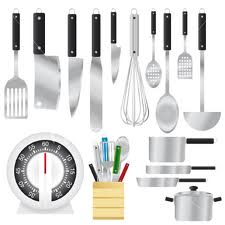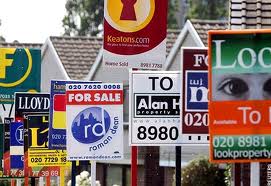 In this time of the Great Recession, if we are cutting budgets, saving more and using our brains, we should be realizing that poverty is expensive. In fact it’s way too expensive! We just can’t afford it anymore.
In this time of the Great Recession, if we are cutting budgets, saving more and using our brains, we should be realizing that poverty is expensive. In fact it’s way too expensive! We just can’t afford it anymore.
I have been reading about the poverty that our economic system creates – within our country and around the globe. Most of the poverty we have in the world is caused by human beings. Even hunger from natural disasters, such as famines, can be remedied with insurance for farmers, as we do in this country. Poverty is caused by our imperfect economic systems, laws, international laws, apathy and lack of political will.
I’ve also been thinking about the side effects poverty including growing up without good nutrition, without access to preventive health care, without stable income and within environments of violence and abuse – frequently from those who fear the poor.
Growing up hungry, or in a home where parents work numerous jobs, or where meals aren’t served regularly, makes it difficult for children to concentrate in school. It makes it difficult or impossible to do homework. It makes children more susceptible to illness and it takes longer to recover. While there are always those who are exceptions to these kinds of circumstances, they are exceptions.
Eating nutritious food costs more. Our country’s farm policies subsidize highly processed and prepared food high in corn sugar and fat (corn oil). By extension we subsidize corporations (Cargill, ADM, Kraft, McDonald’s, Coca Cola, etc.) who use these ingredients. We do not subsidize nutritious fruits and vegetables, but we could.
Owning a car is expensive and many of the poor can’t afford it. But, as a nation, we do not promote public transportation. This makes taking the bus time consuming and arduous for those who use public transport to get to work, buy groceries, do laundry or take children to school or the doctor. Imagine having to do all of your errands using the bus. Many do.
On the other hand imagine a city where buses have the right of way, can change stop lights and move people quickly. Cities in South America have just such a system. A subway above ground – if you will. Read Bill McKibben’s Deep Economy to see how efficiently and inexpensively it works using what we already have.
With regard to housing, more than one expert has observed that the banking industry could make far more money betting that sub-prime mortgage securities would fail than in the actual income from mortgages and servicing them (read here and here). The existence of the working poor and lack of affordable housing made it a strong probability that greedy elites drove the sub-prime mortgage securities market boom, short & crash and the resulting bank bail-out costing taxpayers trillions.
Living on a planet where so many are hungry certainly isn’t good for me as a person with wealth – and we are all rich, by two thirds of the world’s standards, if we live on more than $2 a day. Living in a different part of the city I experience an “unreal” reality. I do not see life as it really is for most human beings. My focus stays in my small world, acquiring things for my small life. My gifts remain useless to the larger community – since I do not connect there. I am separated in many ways from the larger human family. My heart is thus, hardened. My life and relationships are less full and rich than they are meant to be. Therefore, I become less human than I am meant to be. I become more self-centered and self-focused, the opposite of what it means to be a truly human person.
We simply can’t afford the luxury of poverty anymore. The costs are too high; the costs in human talents lost from both the poor and rich, the costs in emergency room health care and disease, and the costs in human physical, mental and spiritual disabilities of both poor and rich alike.
Paying a fair wage is the first step in eliminating poverty. There is something morally and ethically wrong with an economic system that allows some to accumulate great wealth when so many children go hungry – especially in this country. Accumulating wealth is fine – once the basic needs of everyone have been met. Life is risky. People get sick, encounter tragedies, have accidents. We need adequate social safety nets, including health insurance, affordable housing and education, for everyone.
Eliminating poverty brings advantages to everyone. Health care costs are reduced for all. The level of education of our entire population improves benefitting everyone. Consequently the skill level of workers improves along with entrpreneurism and employment. Crime perpetrated by both rich and poor declines. Abuse, drug use and human slavery by both rich and poor decline. Self-determination and autonomy through democracy increase. Political and corporate terrorism and despotism no longer appeal with their promise of providing food.
Watch the movie Made in L.A. to see a true, but powerful story about how three young women changed the apparel industry. We each can make a difference.
Eliminating poverty is not just a religious imperative – although it is that. It is a human imperative. Even avowed atheists like philosopher Peter Singer promote the importance of caring for everyone and the impact it has on the whole of human society. Read his book The Life You Can Save for an eye-opening yet entertaining discussion.
We’ve created our economic system. We change the way it works by adjusting laws, regulating it and measuring what we think is important.
Our economy exists to care for the needs of human beings – not the other way around. This economic system can be an engine for growth with values that promote the good of all. Inhuman values of greed and selfishness can be replaced with values of concern and cooperation. Standards of fair trade, fair wages, health insurance for all and care of the environment can be implemented. These are not mutually exclusive interests. In fact they work together.
We are all interconnected and interdependent. When the poorest among us do well – we ALL do better. For the health and well being of all of us, poverty is a luxury we can no longer afford.
You may also like What Can You and I Do?, White Privilege and Where Do Our Clothes Come From?



